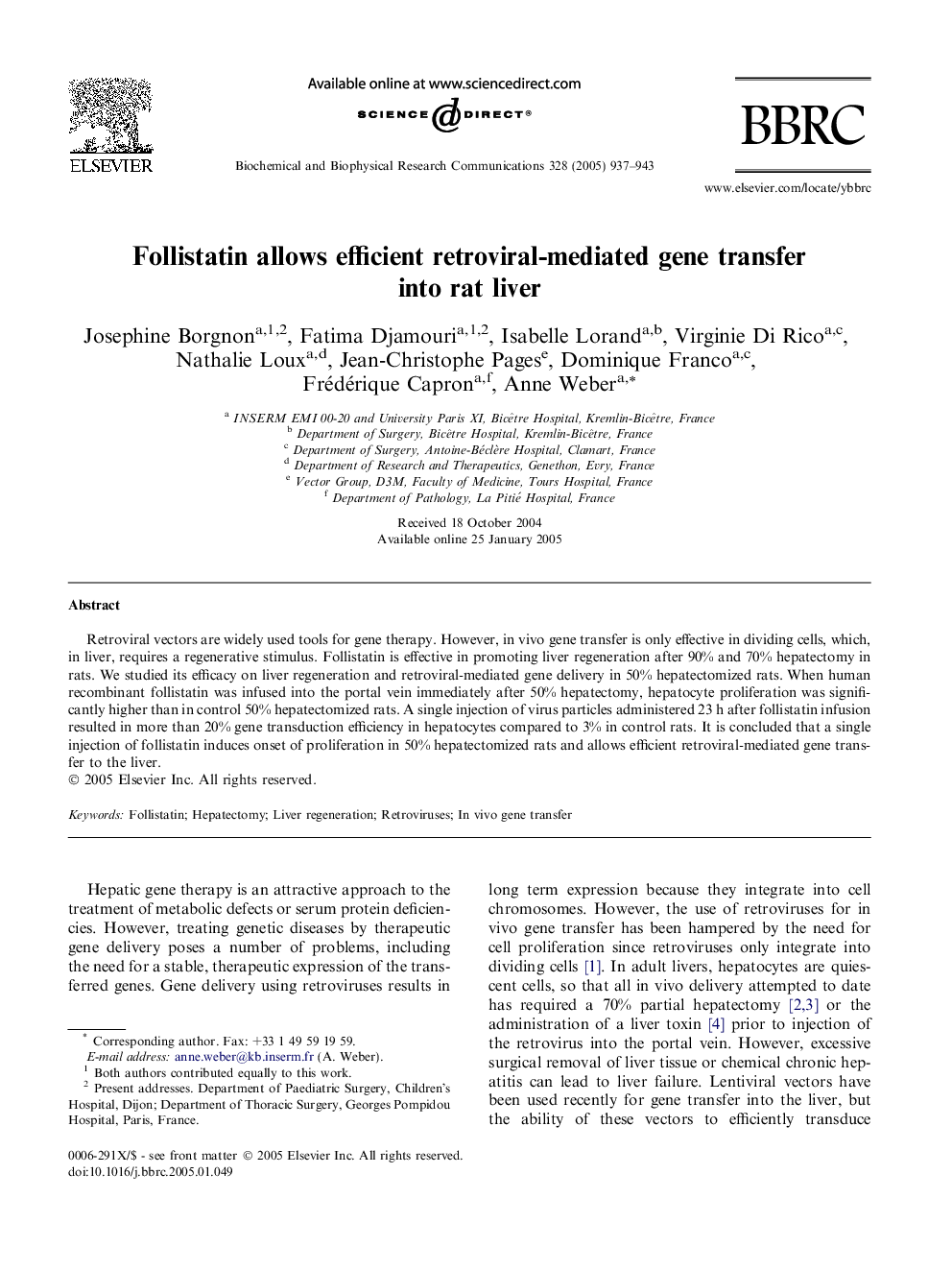| Article ID | Journal | Published Year | Pages | File Type |
|---|---|---|---|---|
| 10770583 | Biochemical and Biophysical Research Communications | 2005 | 7 Pages |
Abstract
Retroviral vectors are widely used tools for gene therapy. However, in vivo gene transfer is only effective in dividing cells, which, in liver, requires a regenerative stimulus. Follistatin is effective in promoting liver regeneration after 90% and 70% hepatectomy in rats. We studied its efficacy on liver regeneration and retroviral-mediated gene delivery in 50% hepatectomized rats. When human recombinant follistatin was infused into the portal vein immediately after 50% hepatectomy, hepatocyte proliferation was significantly higher than in control 50% hepatectomized rats. A single injection of virus particles administered 23Â h after follistatin infusion resulted in more than 20% gene transduction efficiency in hepatocytes compared to 3% in control rats. It is concluded that a single injection of follistatin induces onset of proliferation in 50% hepatectomized rats and allows efficient retroviral-mediated gene transfer to the liver.
Related Topics
Life Sciences
Biochemistry, Genetics and Molecular Biology
Biochemistry
Authors
Josephine Borgnon, Fatima Djamouri, Isabelle Lorand, Virginie Di Rico, Nathalie Loux, Jean-Christophe Pages, Dominique Franco, Frédérique Capron, Anne Weber,
